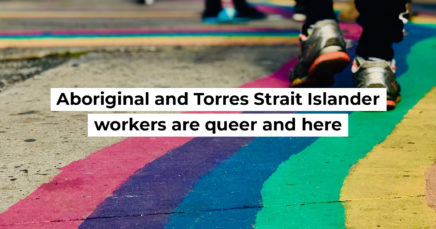The federal government’s work-for-the-dole scheme is denying Aboriginal people in remote communities basic rights, equal treatment and fair payment for work, legal and human rights advocates have told a Senate inquiry.
The government is revamping its controversial Community Development Programme, which covers about 35,000 people, mostly from Aboriginal communities.
The North Australian Aboriginal Justice Agency and the Human Rights Law Centre have highlighted the “inherent discrimination” of the social security program in separate submissions to a Senate committee.
Remote participants must do 25 hours of “work-like” activities per week to receive welfare payments, which are up to three times longer than the requirement for unemployed people living in towns.
HRLC legal advocacy director Adrianne Walters says over the course of a year, they’re also paid substantially less per hour than participants in non-Indigenous majority urban areas.
“This looks very much like a racially discriminatory government program,” she said.
“Money is being poured into a program that is strangling opportunities for community-led employment creation and community development, and seeing families go hungry and young people disengage.”
The Turnbull government has come under fire for issuing more than 200,000 fines to CDP workers who breached their requirements since the program began in July 2015.
NAAJA senior lawyer Harley Dannatt said CDP workers were around 20 times more likely to be financially penalised compared with those in the non-remote job-seeker program.
“People have told us about not being able to do everything that the government demands of them, about having payments cut for eight weeks, and about the hardship this causes their children and families,” she said.
“People want to work and they want to be employed to work, rather than receiving below-minimum wage payments through this discriminatory program.”
Last month, Minister for Indigenous Affairs Nigel Scullion said 90 per cent of sanctions were waived instantly, but stressed Aboriginal people didn’t want “sit down money”.
A consultation process for a new model is under way with changes expected to come into force by the end of the year.
Reported by By Lucy Hughes Jones
Source: NITV News



